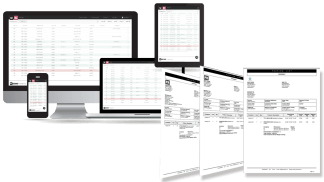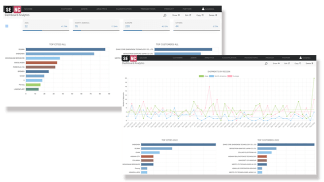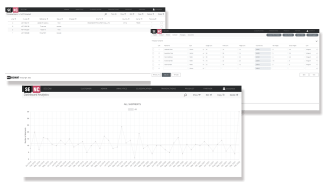Free trade agreements in Switzerland
In addition to the EFTA agreement and the free trade agreement with the European Union (EU), Switzerland currently has a network of 33 free trade agreements with 43 partners.
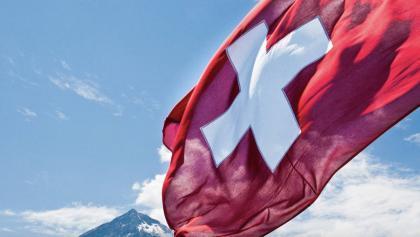
In addition to the EFTA Convention and the free trade agreement with the European Union (EU), Switzerland currently has a network of 33 free trade agreements with 43 partners. Generally, free trade agreements are concluded within the framework of the European Free Trade Association (EFTA). However, Switzerland has the possibility of concluding free trade agreements outside EFTA, as was the case, for example, with Japan or China.
Other agreements are currently being negotiated. The purpose of free trade agreements is to strengthen economic relations between the main international partners and to facilitate access for Swiss companies to world markets.
To achieve this, they aim to eliminate tariffs and non-tariff trade barriers, such as technical standards, packaging and labeling regulations, and import requirements.
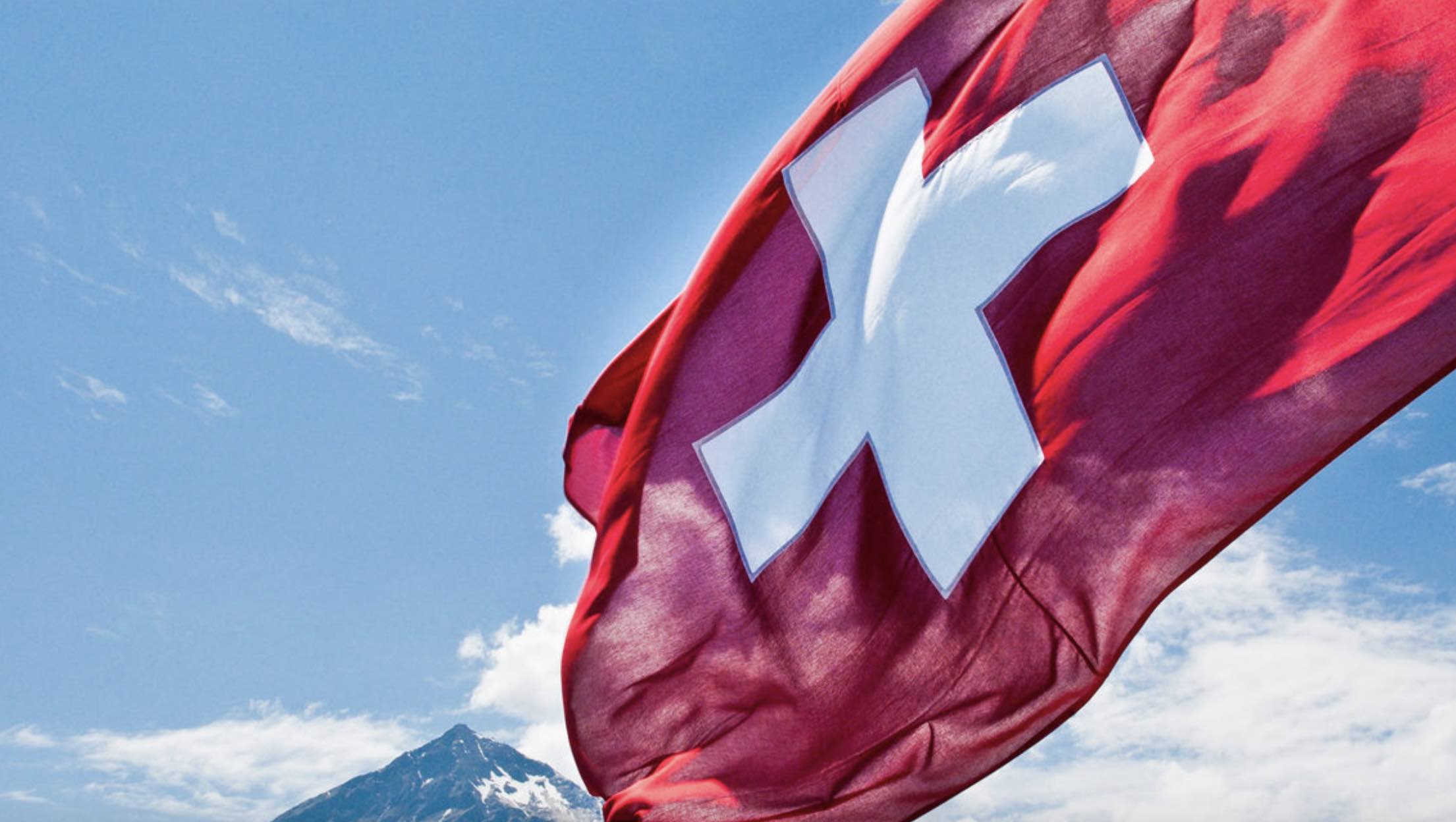
How was EFTA created?
In order to promote trade between its members, the Stockholm Convention created EFTA in 1960 to eliminate tariffs on industrial products. A 2001 agreement to renew the convention added provisions covering, among other things, services, capital movements and intellectual property protection.
Since the 1990s, EFTA member states have used the organization as a platform to negotiate free trade agreements with non-EU states. As of 2013, EFTA has a network of 25 agreements involving 35 partner countries. More agreements are currently being negotiated.
In which free trade agreements does Switzerland participate?
In Europe:
- EFTA- Convention: In this treaty, agreements have been concluded within the framework of EFTA with the countries of Switzerland, Liechtenstein, Norway and Iceland. It entered into force on May 3, 1960.
- European Community (EC): The 27 countries that make up the European Union (EU) participate in this treaty. It came into force on January 1, 1973. Bilateral CH-EC.
- Faroe Islands: Entry into force: 1 March 1995; bilateral CH-Feroe.
- North Macedonia: Entry into force: 1 May 2002.
- Albania: Entry into force: 1 November 2010.
- Serbia: Entry into force: 1 October 2010.
- Ukraine: Entry into force: 1 June 2012.
- Montenegro: Entry into force: 1 September 2012.
- Bosnia and Herzegovina: Entry into force: 1 January 2015.
- Georgia: Entry into force: 1 May 2018.
- United Kingdom: Entry into force: 1 January 2021; bilateral CH-UK.
- Moldova: In negotiations.
- Russia-Belarus-Kazakhstan Customs Union: In negotiations.
In the Mediterranean Basin
- Turkey: Entry into force: April 1, 1992. An update to this agreement was signed on June 25, 2018.
- Israel: Entry into force: July 1, 1993.
- Palestinian Authority: Entry into force: July 1, 1999.
- Morocco: Entry into force: 1 December 1999.
- Jordan: Entry into force: 1 September 2002.
- Tunisia: Entry into force on June 1, 2005. And entered into force on June 1, 2006.
- Lebanon: Entry into force: January 1, 2007.
- Egypt: Application since August 1, 2007. Entered into force on September 1, 2008.
- Algeria: In negotiations.
Worldwide
- Mexico: Entry into force: July 1, 2001.
- Singapore: Entry into force: January 1, 2003.
- Chile: Entry into force: December 1, 2004.
- Republic of Korea: Entry into force: September 1, 2006.
- SACU (South African Customs Union): South Africa, Botswana, Eswatini, Lesotho and Namibia. Entry into force: May 1, 2008.
- Canada: Entry into force: July 1, 2009.
- Japan: Entry into force: September 1, 2009. Bilateral CH-Japan.
- Colombia: Entry into force: July 1, 2011.
- Peru: Entry into force: July 1, 2011.
- Hong Kong: Entry into force: October 1, 2012.
- Cooperation Council for the Arab States of the Gulf (GCC): Bahrain, Kuwait, Oman, Qatar, Saudi Arabia and United Arab Emirates. Entry into force: July 1, 2014.
- China: Entry into force: July 1, 2014, bilateral Switzerland - China.
- Central American States: Costa Rica, Guatemala, Honduras and Panama. Entry into force: 29 August 2014 (Panama and Costa Rica).
- Philippines: Entry into force: June 1, 2018.
- Ecuador: Entry into force: November 1, 2020.
- Thailand: In negotiations.
- Indonesia: Free trade agreement signed on December 16, 2018.
- India: In negotiations.
- Vietnam: In negotiations.
- Malaysia: In negotiations.
- Mercosur: Argentina, Brazil, Paraguay, Uruguay. In negotiations.
As you can see, there are many free trade agreements in Switzerland. Now let's take a look at some that have given a lot of talk: The Mercosur and Indonesia agreements.
Free Trade Agreement EFTA- Mercosur
On August 23, 2019, the Free Trade Agreement between the member states of the European Free Trade Association- EFTA (Iceland, Liechtenstein, Norway and Switzerland) and Mercosur (Argentina, Brazil, Paraguay and Uruguay) was signed.
The aspects covered by this agreement are:
- Trade in services
- Investment
- Intellectual property rights
- Government procurement
- Competition
- Trade and sustainable development
- Legal and horizontal issues. Including dispute settlement.
With this trade alliance, EFTA will benefit from a market of 260 million consumers.
EFTA's current bilateral trade in goods with Mercosur amounted to €5.8 billion in 2018.
With €3.7 billion from EFTA exports and €2.1 billion from part of Mercosur imports.
Environmental Impact Assessment between EFTA - Mercorsur
An important fact you have to consider is that Switzerland has specific policies regarding environmental care.
And they expect their trading partners to comply with certain requirements.
Since June 30, 2020, the "Green Economy" plan organized by the Federal Council, the State Secretariat for Economic Affairs (SECO), the Federal Office for the Environment (FOEN) and the Federal Office for Agriculture (FOAG) was launched.
These institutions and the World Trade Institute of the University of Berma concluded that the overall environmental impact of the environmental effects of the EFTA-Mercosur free trade agreement is likely to be low.
This study was projected from 2019 to 2040 with the countries of this agreement between EFTA (Switzerland, Norway, Liechtenstein, Iceland) and Mercosur countries (Brazil, Argentina, Paraguay, Uruguay).
The economic results with this agreement would be:
- That Swiss exports to Mercosur countries in 2040 would be 55% higher than without the FTA.
- Meanwhile, exports from Mercosur countries to Switzerland would be 5% higher.
- In terms of gross domestic product (GDP) in Switzerland it would be 0.6% higher for Switzerland and 0.01% higher for Mercosur countries.
It was also projected that in 2040, greenhouse gases in Switzerland would only be 0.1% higher than without the FTA, while in Mercosur countries only 0.02%.
And air pollution would increase by 0.02% in Switzerland, while in the rest of the world it would remain the same or not change significantly.
In conclusion, no specific product sectors were identified whose production would be harmful to the environment as a result of these trade agreements.
Comprehensive Free Trade Agreement (CEPA)- EFTA-Indonesia
With the aim of increasing legal certainty, the countries that make up the European Free Trade Association (EFTA) signed an agreement to improve bilateral economic relations. They called it: Comprehensive Free Trade Agreement (CEPA).
The CEPA is intended to increase legal certainty and promote trade cooperation. This agreement came into force since the winter of 2019, with the approval of the European Parliament.
It is worth highlighting that, this agreement was signed on December 16, 2018, between the EFTA member countries (Switzerland, Iceland, Liechtenstein and Norway), in addition to this alliance also joined: Indonesia.
The idea is that all productive sectors can benefit from this agreement, including those belonging to the agricultural industry.
Switzerland will allow Indonesia duty-free access for industrial products.
However, it is worth clarifying that the tariff concessions for agricultural companies are the same as in other free trade agreements.
